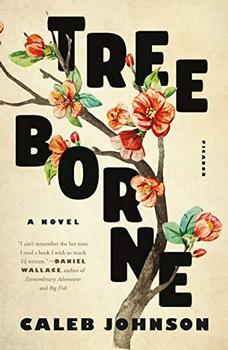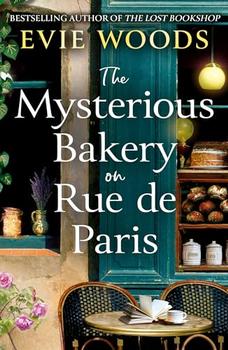Summary | Excerpt | Reviews | Beyond the book | Read-Alikes | Genres & Themes | Author Bio

A sweeping, eerily resonant epic of race and violence in the Jim Crow South: a lyrical and emotionally devastating masterpiece from Charlie Smith, whom the New York Public Library has said "may be America's most bewitching stylist alive."
Delvin Walker is just a boy when his mother flees their home in the Red Row section of Chattanooga, accused of killing a white man. Taken in by Cornelius Oliver, proprietor of the town's leading Negro funeral home, he discovers the art of caring for the aggrieved, the promise of transcendence in the written word, and a rare peace in a hostile world. Yet tragedy visits them near daily, and after a series of devastating events - a lynching, a church burning - Delvin fears being accused of murdering a local white boy and leaves town.
Haunted by his mother's disappearance, Delvin rides the rails, meets fellow travelers, falls in love, and sees an America sliding into the Great Depression. But before his hopes for life and love can be realized, he and a group of other young men are falsely charged with the rape of two white women, and shackled to a system of enslavement masquerading as justice. As he is pushed deeper into the darkness of imprisonment, his resolve to escape burns only more brightly, until in a last spasm of flight, in a white heat of terror, he is called to choose his fate.
In language both intimate and lyrical, novelist and poet Charlie Smith conjures a fresh and complex portrait of the South of the 1920s and '30s in all its brutal humanity - and the astonishing endurance of one battered young man, his consciousness "an accumulation of breached and disordered living ... hopes packed hard into sprung joints," who lives past and through it all.
Nearly every paragraph in the book is a work of art and on a page-by-page basis I am utterly in awe of this author's writing. Unfortunately it becomes too much of a good thing relatively early on. Smith's descriptions are lush but extensive; they seem to go on forever and bog down Delvin's story considerably, giving the narrative a plodding, elegiac tone. I came away from the book with a deeper understanding of the heart of the racial divide that continues to affect us (the United States in particular) to this day. While the book may be slow-going, readers who appreciate a well-crafted novel will almost certainly find that it's worth the time...continued
Full Review
(904 words)
This review is available to non-members for a limited time. For full access,
become a member today.
(Reviewed by Kim Kovacs).
In Ginny Gall, the main character is an avid reader who aspires to be much like the black authors he admires. A few early African Americans writers are listed below.

Top, from left to right: James Weldon Johnson, Harriet Wilson, William Wells Brown
Bottom, from left to right: Jessie Fauset,W. E. B. Du Bois, Paul Laurence Dunbar
William Wells Brown (1814 – 1884) was an author, journalist and playwright. An escaped slave from Kentucky, Brown published his autobiography, Narrative of William W. Brown, a Fugitive Slave in 1847. The book, which highlighted the disconnect between Christian tenants and the actions of white slaveholders, became a bestseller across the United States and launched his career as an abolitionist ...
This "beyond the book" feature is available to non-members for a limited time. Join today for full access.

If you liked Ginny Gall, try these:

The Love Songs of W.E.B. Du Bois
by Honorée Fannone Jeffers
Published 2022
The 2020 National Book Award–nominated poet makes her fiction debut with this magisterial epic - an intimate yet sweeping novel with all the luminescence and force of Homegoing; Sing, Unburied, Sing; and The Water Dancer - that chronicles the journey of one American family, from the centuries of the colonial slave trade through the Civil War ...

by Caleb Johnson
Published 2019
Treeborne is a celebration and a reminder: of how the past gets mixed up in thoughts of the future; of how home is a story as much as a place.



Show me the books he loves and I shall know the man...
Click Here to find out who said this, as well as discovering other famous literary quotes!